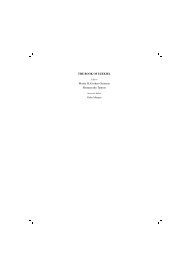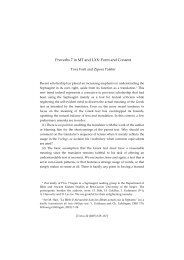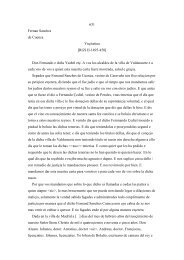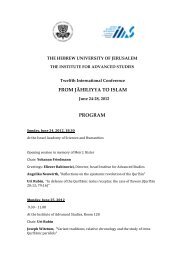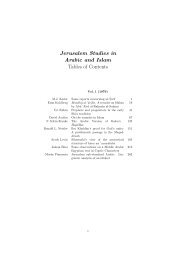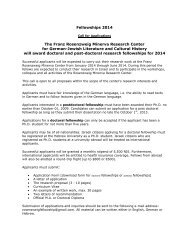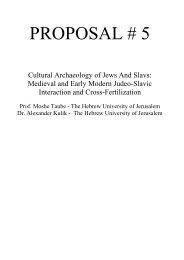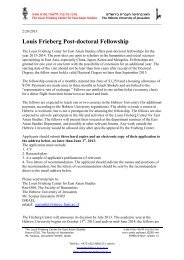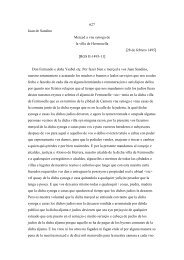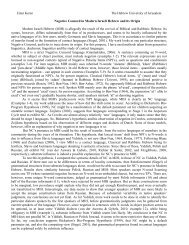Baber Johansen
Baber Johansen
Baber Johansen
Create successful ePaper yourself
Turn your PDF publications into a flip-book with our unique Google optimized e-Paper software.
18<br />
In other words, human beings have the choice of obeying or not obeying<br />
God’s command, the choice between obedience and sin, but once they<br />
decide to obey, they have to follow the law. But on other occasions,<br />
SarakhsÐ seems to open the concept of the act that brings closer to God<br />
also for non-Muslims. 63 This position is also held by one of the greatest<br />
and most respected jurists of the ShÁfiÝÐ school, whose work has been<br />
commented on by the jurists of his school over the centuries, MuÎyÐ al-<br />
DÐn ibn Sharaf al-NawawÐ (1233-1277). Like Ibn ÝAqÐl, ShÐrÁzÐ and BÁjÐ<br />
before him, he holds that the performance of the act of worship, the cultic<br />
act, acquires its meaning and its spiritual rank through the actor’s intent<br />
to come closer to God. NawawÐ quotes approvingly the Khorasanian<br />
mystic, theologian and ShÁfiÝÐ jurist, ÝAbd al-Karim Ibn HawÁzin<br />
QushayrÐ (986-1072), 64 who in his famous RisÁla, a mystical treatise,<br />
defines sincerity of devotion (ikhlÁÒ) in the following words:<br />
Sincerity of devotion is to single out purposely the obligee to the<br />
[act of] obedience, in such a way that through his [act of]<br />
obedience he wants to come closer to God, may He be exalted, to<br />
the exclusion of anything else [...] but the coming closer to God,<br />
may He be exalted. It is valid to say: sincere devotion (ikhlÁÒ)<br />
purifies the mind (Ýaql) from the observation of the creatures, and<br />
truthfulness (Òidq) banishes [from it] self-observation. 65<br />
NawawÐ sees the religious and legal importance of the cultic act based on<br />
the actor’s quest to come closer to God. 66 Like the above-quoted jurists,<br />
he distinguishes between acts of obedience (ÔÁÝa), acts that bring closer to<br />
God (qurba, taqarrub), and acts of worship (ÝibÁda). 67 An act of worship<br />
(ÝibÁda) is always an act of obedience (ÔÁÝa) that brings closer to God<br />
(qurba). An act that brings closer to God (qurba) does not necessarily<br />
have to be an act of worship. An act of obedience (ÔÁÝa) indicates that the<br />
actor respects the law, but its validity does not depend on the actor’s<br />
knowing that the purpose of his act is to approach God. NawawÐ uses this<br />
terminology to explain why non-Muslims cannot perform valid acts of<br />
Islamic worship, but are quite capable of performing acts that may please<br />
God. He states:



